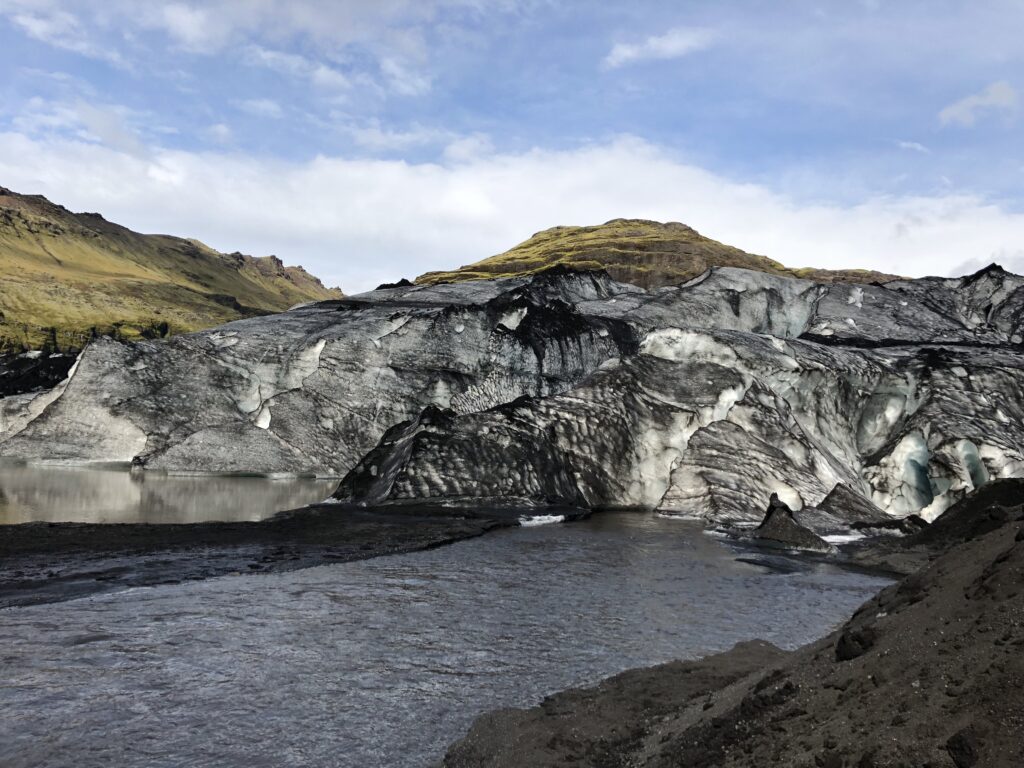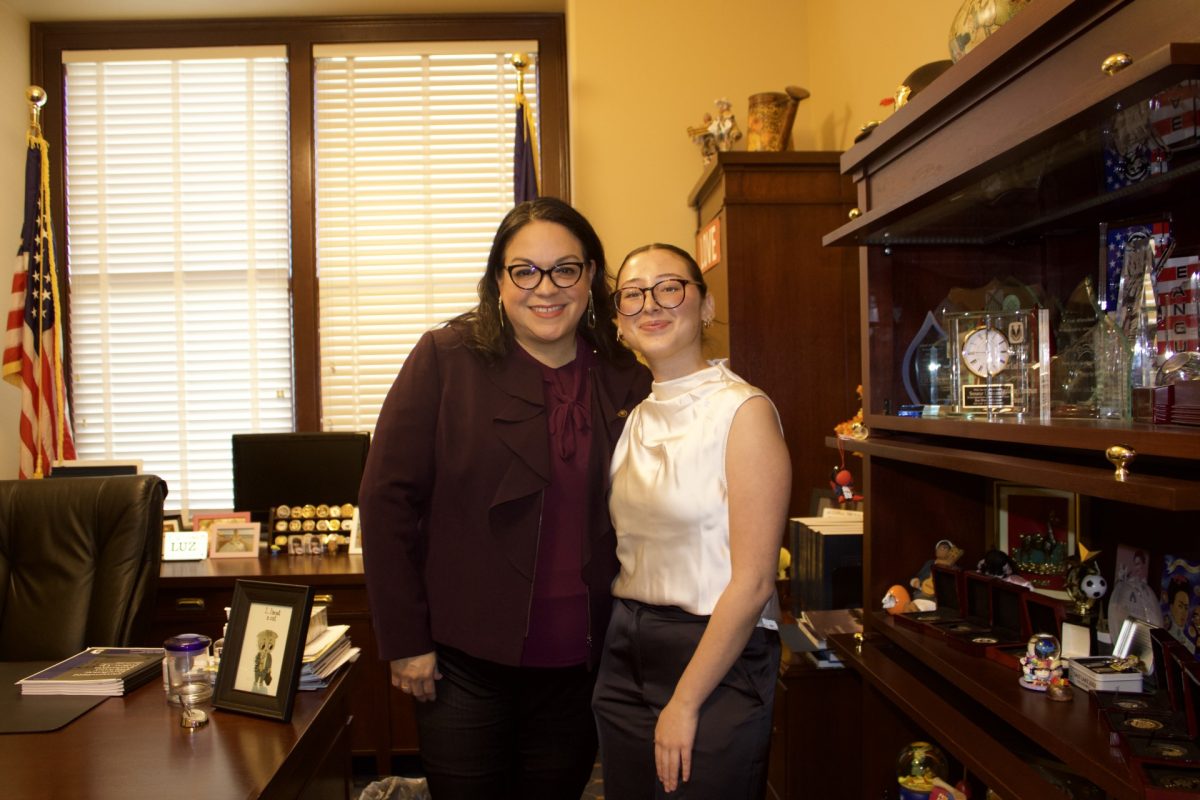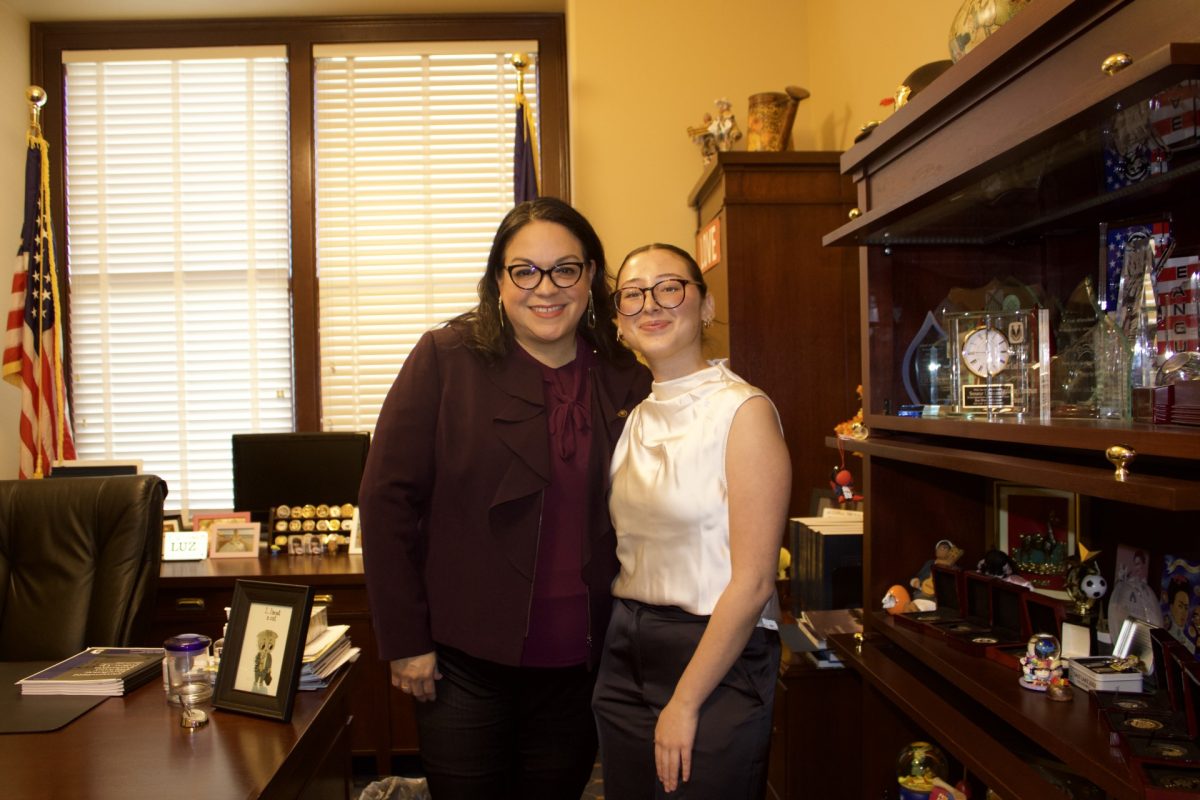I was standing in front of the Sólheimajökull glacier in 2018, lacing my boots before we started our climb to a wall a few hundred yards up the ice.
Our guide was telling us the height of the glacier, the relative age, the amount of visitors each year. As we reached the first step onto ice, he looked back longingly to where we had come.
“The mountain gets smaller every year,” he said.
Years ago, the country paved a road to the start of the glacier. By the time I was standing there, Sólheimajökull was a couple hundred feet from the end of the road, the most glaring evidence of global warming I’d ever seen.
According to NASA’s report on climate change, increased carbon dioxide and other man-made emissions have caused the planet’s average surface temperature to rise 1.62 degrees Fahrenheit.
The oceans have absorbed most of this heat. As temperatures rise, ice sheets and glaciers melt. Between 1993 and 2016, Greenland lost an average of 281 billion tons of ice per year. Antartica lost 119 billion tons per year during that period. In the last decade, Antarctica ice mass loss has tripled.
NASA estimates there is more than a 95 percent chance that human activity is to blame for the shift in climate. Earth’s climate is changing in response to rising greenhouse gas levels.
In the last hundred years, global sea level rose about eight inches. In the last ten years, the rate has nearly doubled and accelerates more every year.
According to a climate change report from The New York Times, in the next 30 years, weather will continue to warm, with increasing extreme weather. Coral reefs and other oceanic habitats are dying.
Climate effects could precipitate the sixth mass extinction of plants and animals in the Earth’s history. Ice caps will melt, causing seas to rise high enough to flood most of the world’s coastal cities.
And our actions will be the trigger for all of those disasters to unfold.
We don’t even have to look to the future to find devastating consequences of global warming. Because of sea level rise, 83,000 residents of New York and New Jersey were flooded during Hurricane Sandy who otherwise would have been safe in a
stable climate.
Tens of thousands of people across the globe are dying from heat waves. Climate change has disrupted refugee flows and destabilized global politics.
And as with every social problem, poor people are being hit first and hardest. Poor people will continue to pay the price for the mistakes we make now.
In order for us to stave off the worst effects of global warming, human emissions must be reduced to zero. The good news is that many countries have significantly dropped their emissions by creating programs like fuel-economy standards for cars, stricter building codes and emissions limits for power plants.
But in order to enact real change, energy transition needs to accelerate dramatically.
An immediate concern is the volume of single-use plastics in our oceans. According to oceancrusaders.org, there are 5.25 trillion pieces of plastic debris in the ocean. Eight million tons of plastic trash flow into the ocean every year.
Ninety-one percent of America’s plastic is not recycled and instead ends up in landfills or the ocean.
A study done by World Economic Forum estimates that plastic trash will outweigh fish in the ocean by 2050. Ninety-nine percent of all seabird species will have
ingested plastic.
One hundred thousand marine creatures die every year from plastic entanglement — and that’s just the number we find. Additionally, 1 million sea birds die every year from plastic.
Worldwide, shoppers use approximately 500 billion single-use plastic bags per year. That means we’re using one million bags every minute. On average, each person contributes 150 bags per year.
Most grocery retailers offer reusable shopping bags for $.50 or $1. Once you’ve made the switch to non-plastic shopping bags, it’s time to invest in a reusable
water bottle.
Consider this. Around the world, more than a billion people don’t have access to safe drinking water, according to a report from Centers for Disease Control and
Prevention.
People in these countries have good reason to drink from safe bottled water. But the vast majority of plastic bottle consumption comes from countries with quality
tap water.
Americans alone consume 8.6 billion gallons of bottled water annually. Of these, only one in five are recycled. Every year, 17 million barrels of oil are used to produce bottled water — enough for 340 million gallons of gasoline.
Other plastic goods are contributing to our oceanic crisis. On July 1, 2018, Seattle became the first American city to ban the use of plastic straws. Other states have introduced legislation to ban plastic straws by 2020.
Americans alone use 500 million plastic straws every day, according to the National Park Service. Most of those end up in the ocean. Straws are too light to make it through the mechanical recycling sorter, so they drop through sorting screens and usually end up getting disposed as garbage.
Plastic straws contribute to nearly 10 percent of our plastic waste. There are nearly 7.5 million plastic straws on America’s shorelines. There are an estimated 900 million plastic straws on the world’s coastlines. And since they’re not biodegradable, these unnecessary utensils aren’t
going anywhere.
Because straws are so small, they’re extremely dangerous to marine life. Straws entangle animals and are consumed by fish.
According to The Washington Post, polar bears are some of the most at-risk animals. By 2050, more than two-thirds of the world’s polar bears will die. By 2060, the species could be extinct.
In 2015, countries reached a landmark deal in Paris to help speed up energy transition. The reductions are voluntary and don’t do nearly enough to head off severe climate change effects. Still, the agreement will theoretically be reviewed every couple years for countries to ramp up their commitments.
Unsurprisingly, President Trump announced that he would be pulling the U.S. out of the deal in 2017, likely because he’s a climate change denier who received $107 million from oil and coal companies for his presidential campaign, as reported by Inside Climate News.
In the past, Trump has called climate change a “Chinese hoax” and accused scientists of trying to fool the public. He cites information like record-low temperatures to undercut scientists’ claim of global warming, which is an interesting strategy, considering we wouldn’t know record-low temperatures without scientists.
Thankfully, more logical leaders from other countries have ignored President Trump and said they would go forward with the Paris treaty regardless of American
intentions.
A host of countries have already banned plastic bags, including China, Kenya and Rwanda. France has banned all plastic utensils, plates and cups.
According to a report from the New York Times, climate denialisms’ arguments are so loosely based in reality that even coal and oil companies have distanced themselves. Of course, these companies still donate to the campaigns of politicians who deny climate change.
What are we paying attention to, if not this? Forget Trump. Forget Kanye. Forget Kavanaugh and the next season of Game of Thrones and increasing gas prices. If we don’t fix this, generations to come won’t care about gas prices because they won’t have anywhere to drive.
Next year, Sólheimajökull will be a foot farther from the road. 100,000 more marine animals will be dead. A billion more plastic straws will litter the ocean — that is, unless we do something about it now.
Invest in your city’s recycling system. Buy a reusable water bottle. Cut the plastic balloons from your birthday celebration. Have your soda without a straw. You may just be one person, but nothing will change unless enough people realize their individual power and commit to making the world better.




















